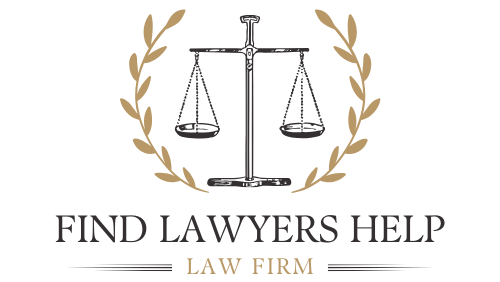
What are the rights of employees in a workplace?
What Are the Rights of Employees in a Workplace?
Understanding employee rights is crucial for fostering a fair and respectful workplace. Employees are entitled to various rights that protect them from discrimination, harassment, and unsafe working conditions. This article explores the fundamental rights of employees in the workplace, the legal frameworks that support these rights, and the steps employees can take to assert their rights.
Key Employee Rights
- Right to a Safe Working Environment
- Employees have the right to work in an environment that is free from hazards. Employers are responsible for identifying potential risks and ensuring that safety protocols are in place. This includes providing necessary training, safety equipment, and maintaining clean workspaces.
- Right to Fair Compensation
- Employees are entitled to receive fair wages for their work, which includes at least the minimum wage set by law, timely payment, and any overtime compensation owed. Employers must provide clear information about pay structures and deductions.
- Right to Equality and Non-Discrimination
- Employees cannot be discriminated against based on race, gender, age, religion, disability, or sexual orientation. Equal treatment in hiring, promotions, and pay is mandated by law. Employers must create an inclusive environment where all employees feel valued.
- Right to Privacy
- Employees have a reasonable expectation of privacy in certain areas of their work life. This includes personal belongings and private communications. Employers should not monitor employees without legitimate reasons.
- Right to Freedom from Harassment
- Every employee has the right to work free from harassment or bullying. This includes verbal, physical, or sexual harassment. Employers must implement policies for reporting and addressing harassment complaints effectively.
- Right to Family and Medical Leave
- Employees have the right to take unpaid leave for family or medical reasons without risking job security. This includes situations like childbirth or caring for a sick family member.
- Right to Join or Form a Union
- Employees can join or form unions to collectively negotiate with employers regarding wages, working conditions, and other job-related matters. Employers cannot retaliate against employees for exercising this right.
- Right to Accommodation for Disabilities
- Individuals with disabilities have the right to reasonable accommodations at work to perform their jobs effectively. This may include changes in work schedules or modifications to equipment.
- Right to Complain or Protest Against Unfair Work Conditions
- Employees can voice concerns about unsafe working conditions or unfair treatment without fear of retaliation. This includes reporting issues related to health and safety.
- Right to Work Without Retaliation
- Employees should be able to perform their jobs without facing punishment for standing up for their rights or reporting violations of workplace rules.
Legal Framework Supporting Employee Rights
Employee rights are protected by various laws and regulations that vary by country but generally include:
- Occupational Safety and Health Administration (OSHA): In the United States, OSHA sets standards for workplace safety and health.
- Equal Employment Opportunity Commission (EEOC): This U.S. agency enforces federal laws prohibiting employment discrimination.
- Americans with Disabilities Act (ADA): Protects individuals with disabilities from discrimination in all areas of public life.
- Family Medical Leave Act (FMLA): Allows eligible employees to take unpaid leave for family and medical reasons.
- Labor Relations Act: Governs the relationship between employers and unions in many countries.
Steps Employees Can Take to Assert Their Rights
If you believe your rights as an employee have been violated, consider taking these steps:
- Document Everything: Keep detailed records of incidents that violate your rights, including dates, times, witnesses, and relevant communications.
- Know Your Rights: Familiarize yourself with your workplace policies and local labor laws so you can identify violations more easily.
- Report Violations: Use your employer’s internal grievance procedures to report any violations of your rights.
- Seek Legal Advice: If internal reporting does not resolve your issue, consult with an attorney specializing in employment law.
- Contact Relevant Authorities: If necessary, reach out to government agencies like OSHA or the EEOC for assistance with your claim.
Frequently Asked Questions (FAQs)
What should I do if I feel my rights are being violated at work?
Document the incidents thoroughly and report them through your employer’s grievance procedures. If unresolved, seek legal advice or contact relevant authorities.
Can I be fired for complaining about unsafe working conditions?
No, it is illegal for employers to retaliate against employees who report unsafe conditions or exercise their rights under labor laws.
How can I prove discrimination at work?
Gather evidence such as emails, performance reviews, witness statements, and any documentation that supports your claim of discrimination based on protected characteristics.
What are my rights regarding overtime pay?
Employees are entitled to receive overtime pay at a rate specified by law (usually 1.5 times the regular pay rate) for hours worked beyond a standard workweek (typically 40 hours).
Are there protections for whistleblowers?
Yes, many laws protect whistleblowers from retaliation when they report illegal activities or unsafe practices within their organization.
Conclusion
Understanding employee rights is essential for creating a fair and equitable workplace environment. By being informed about these rights and knowing how to assert them effectively, employees can protect themselves from exploitation and ensure that their workplace remains safe and respectful.
| Aspect | Details |
|---|---|
| Safe Working Environment | Right to work free from hazards; employers must ensure safety protocols |
| Fair Compensation | Right to minimum wage; timely payment; clear pay structures |
| Equality & Non-Discrimination | Protection against discrimination based on various characteristics |
| Privacy Rights | Expectation of privacy in personal belongings and communications |
| Freedom from Harassment | Right to a harassment-free workplace; policies must be enforced |
| Family & Medical Leave | Right to unpaid leave for family/medical reasons |
| Union Rights | Freedom to join/form unions; protection against retaliation |
| Disability Accommodations | Right to reasonable adjustments at work |
| Complaint Rights | Freedom to report unfair conditions without retaliation |
| Retaliation Protection | Right to work without fear of punishment for asserting rights |
For more detailed information on employee rights in the workplace, visit U.S. Equal Employment Opportunity Commission.
